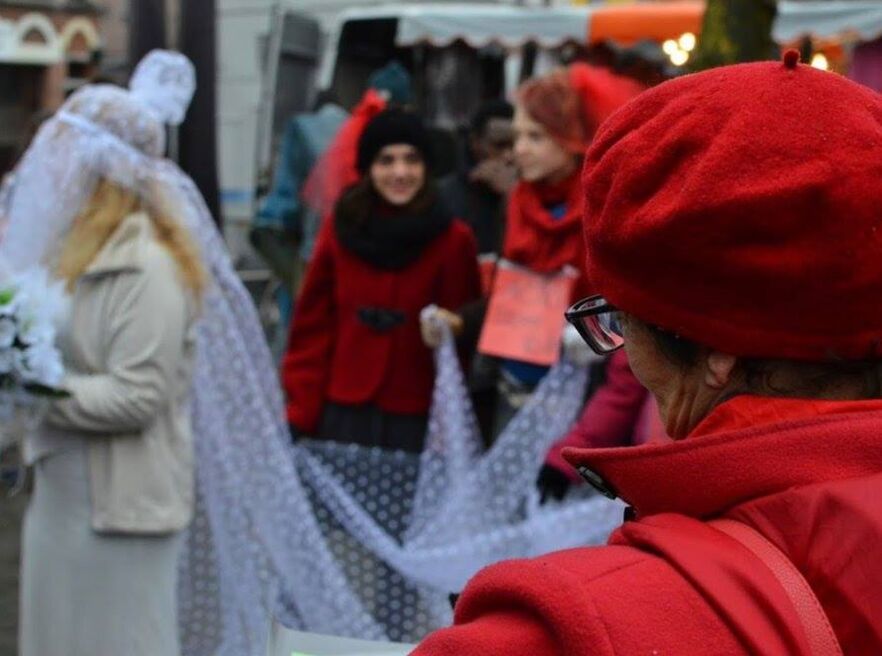|
|
|
In France and Belgium, residence permits issued to migrants from the global south married to French or Belgian citizens have consistently risen since the mid-1990s. These unions – depicted as a legal loophole that give migrants cover to secure residency, sometimes by taking advantage of unsuspecting citizens, and as fuel for ‘ethnic separatism’ when migrants marry citizens of migration background – have been targeted by law reforms in the 2000s designed to discourage them and hurdle consequent applications for temporary and permanent residence, and citizenship acquisitions.
My Identities article, ‘Family rights-claiming as act of citizenship: an intersectional perspective on the performance of intimate citizenship’, examines the enforcement of such provisions and its climate from the standpoint of French and Belgian citizens who want to marry or are already married to non-European migrants. Precisely, it draws on the experiences of national partners who, seeking legal help from non-governmental organisations (NGOs), participate in their advocacy actions. Some partners wish to overcome minute, intrusive and discretionary migration controls and administrative blockages for marrying or applying for residence, while others seek the annulment of their marriage claiming to have been cheated by their migrant partners. Although diametrically opposed, the intimate and administrative experiences of these partners erode the boundaries between their intimacy and citizenship.
I encountered such experiences while observing four NGOs with contrasting approaches to marriage migration. Two NGOs concerned with the administrative mistreatment of partners during marriage and migration formalities demand full respect of private and family rights. Another NGO, concerned with migratory abuse towards national partners, demand more state intervention to protect citizens. Interestingly, an NGO for each type exists both in Belgium and France. In fact, in both countries, bureaucratic practices and public discourses regarding mixed-immigration status unions have overlapping similarities, even though Belgian policies are more restrictive than French policies (e.g. Belgium requires its citizens to comply with the same conditions for migrants for family reunification – namely strict income, housing and social protection over five years – for their migrant spouse to obtain and maintain a residence permit).
In choosing to work with a particular NGO, national partners become aware of their own and/or their couple’s rights. NGOs give voice to their divergent grievances: in one case, to its own state’s unattended scrutiny and, in the other, about state lack of protection. The reformulation of personal and administrative injustice into rights claims led these partners to assert that they fully deserve the rights of citizenship on the basis of or despite their affective choice. Thanks to these partners’ narratives, I show that citizenship is not just a matter of status and membership, but a practice rooted in individuals’ intimate and private experiences. To put this simply, citizenship is more what individuals do than what individuals have. I demonstrate how the national partners’ experiences of citizenship vary according to their gender and race. White women and partners with migration backgrounds, whether men or women, experience a deterioration of their supposed universal citizenship by the state apparatus. Nationals from migration backgrounds felt like second-class citizens suspected to an open migratory chain; their origin and their affective choice discredit their status and voice. When autochthonous white women are sometimes regarded as either naïve victims or criminals for choosing a black or Arab partner over, for instance, a white American or British partner, they are buried into the racial and social stigma that already affect their partners. Suspected of sham marriages or victims of migratory scam, their state asks them to repent for their inappropriate choice that puts in danger the whiteness of the nation.
Blog post by Laura Odasso, Collège de France, France
Read the full article: Odasso, Laura. Family rights-claiming as act of citizenship: an intersectional perspective on the performance of intimate citizenship. Identities: Global Studies in Culture and Power. DOI: 10.1080/1070289X.2020.1723309
0 Comments
Your comment will be posted after it is approved.
Leave a Reply. |
|
Explore Identities at tandfonline.com/GIDE |
|
The views and opinions expressed on The Identities Blog are solely those of the original blog post authors, and not of the journal, Taylor & Francis Group or the University of Glasgow.

